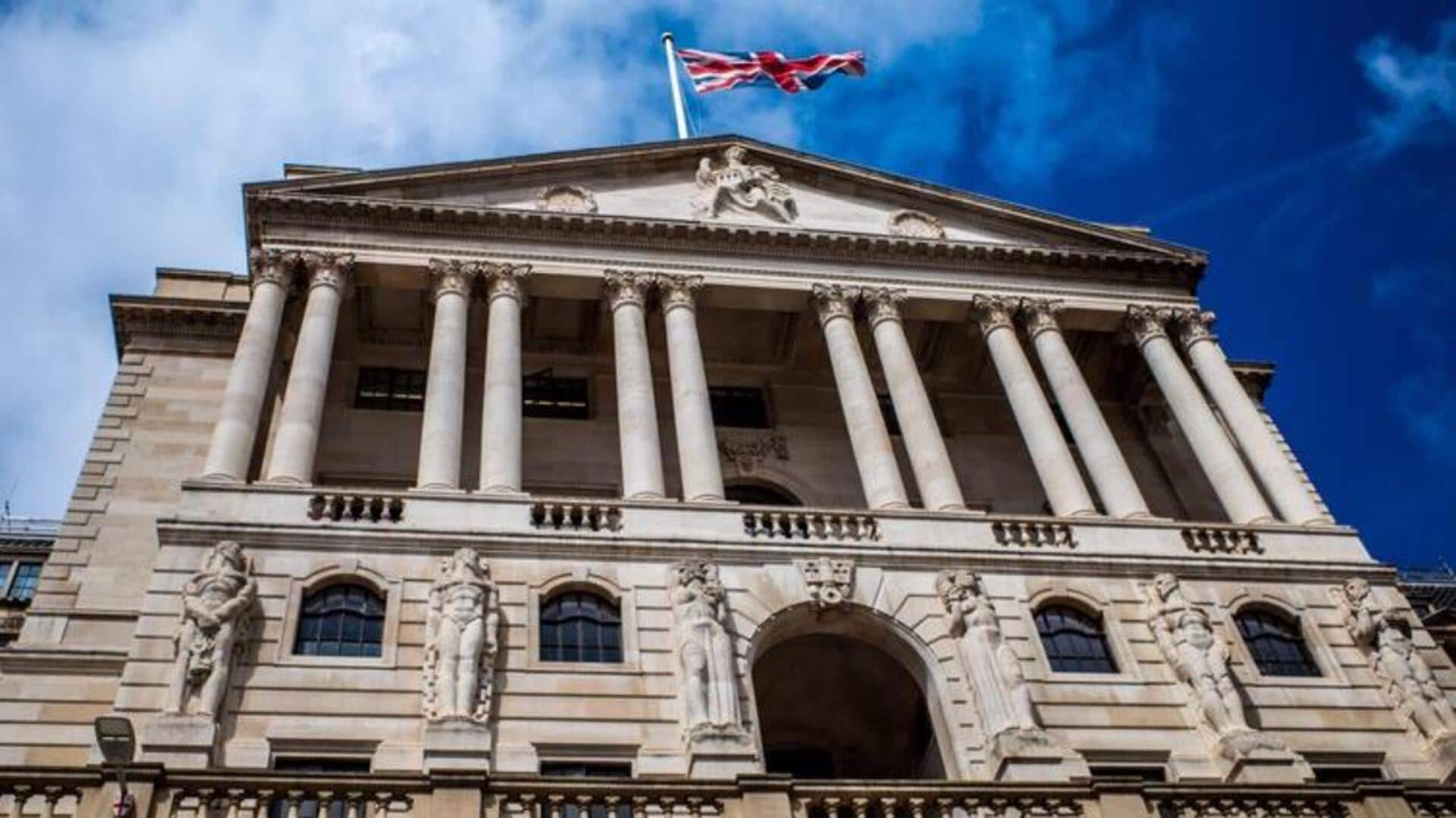
Bank of England keeps interest rates unchanged at 5.25%
What's the story
The Bank of England (BoE) has chosen to keep interest rates at 5.25%, a 15-year high, even with decreasing inflation and worries about the UK's weak economic growth. BoE Governor, Andrew Bailey, mentioned that more work is needed to lower inflation and cautioned that the policy will stay "restrictive for an extended period of time." Bailey said, "We'll continue to watch the data closely, and take the decisions necessary to get inflation all the way back to 2%."
Details
Inflation target and economic growth
BoE staff noted that economic growth is expected to remain mostly flat in the "coming quarters" as higher borrowing costs impact consumer spending. Labour's Shadow Chancellor of the Exchequer, Rachel Reeves, slammed the Conservatives' economic policies, claiming that households have suffered after 13 years of failure. Senior IPPR economist, Carsten Jung, cautioned that BoE's decision might extend the UK's near-zero growth and increase the chances of inflation falling below the 2% target.
What Next?
Reactions to interest rate decision
This decision follows October's report of a 0.3% drop in gross domestic product (GDP), adding more pressure on Prime Minister Rishi Sunak. Bailey had previously warned that interest rates would stay at their current levels due to ongoing inflation concerns. Speaking at Parliament's Treasury Committee last month, Bailey suggested that UK inflation is being underestimated. He expressed concerns over inflation in the services sector remaining at around 6% through early 2024.
Insights
Concerns over persistent inflation
In summary, the BoE has decided to maintain high interest rates despite concerns about inflation and economic growth. This decision has been met with criticism from some politicians and economists who argue that it could prolong the UK's weak economic performance. However, the BoE remains committed to its goal of bringing inflation back down to 2% and will continue to monitor the situation closely.